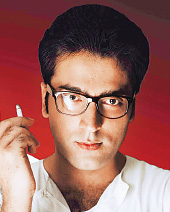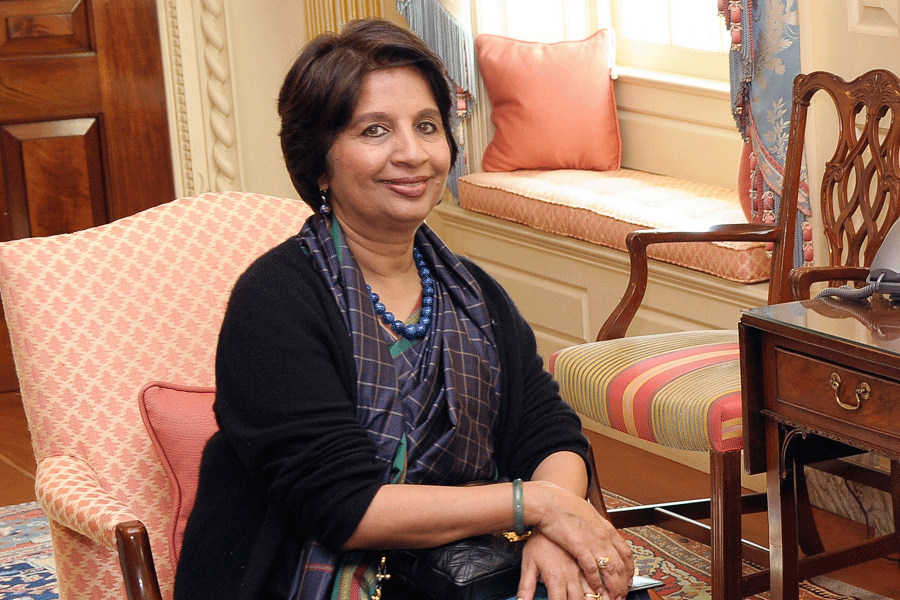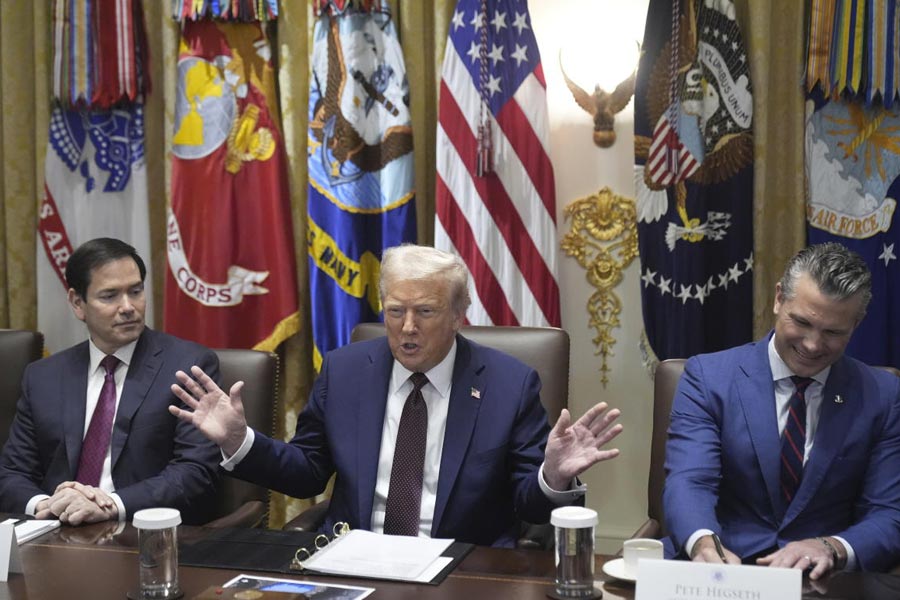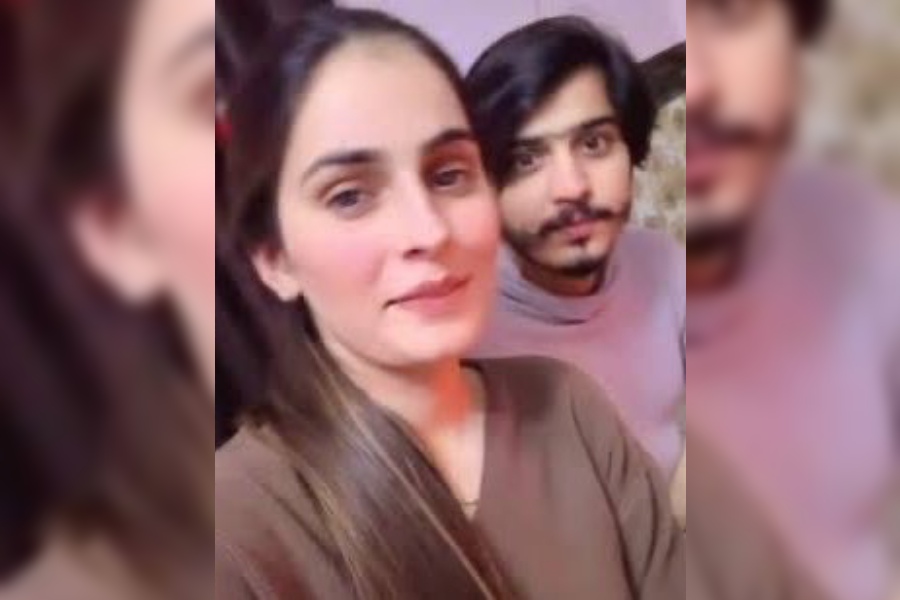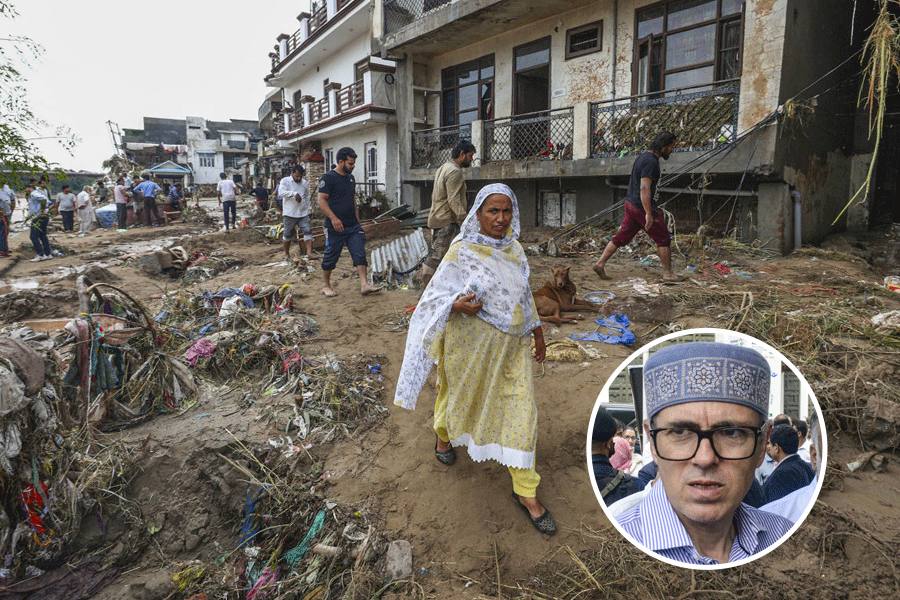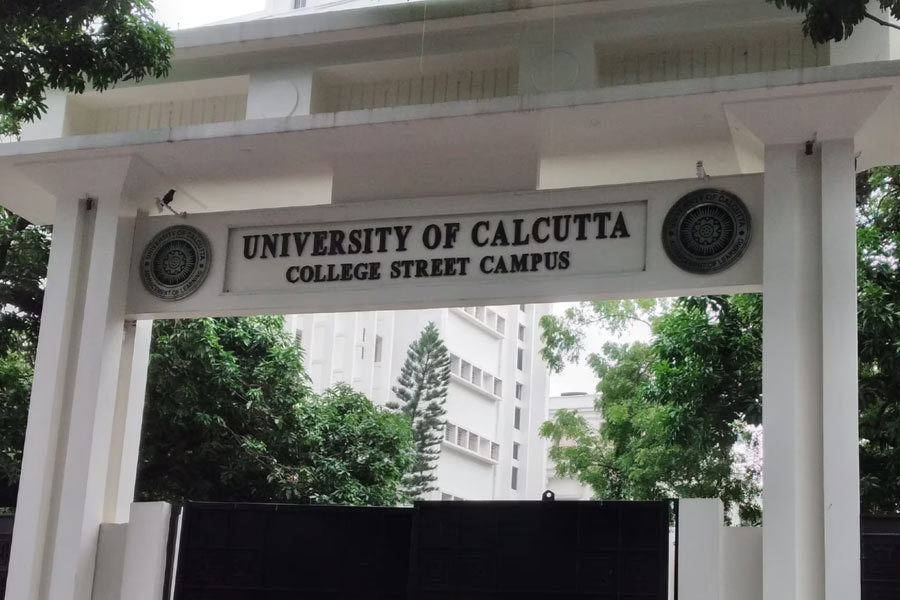 |
| Abir Chatterjee as Bomkesh in Anjan Dutt’s film |
Bomkesh Bakshi is a big draw — from box office to Boi Para.
Sharadindu Bandopadhyay’s dhoti-clad sleuth is the most wanted at College Street bookstores ever since Anjan Dutt’s Bomkesh Bakshi came alive on billboards around town.
“Bomkesh Samagra has always had a standing sale but in the past few weeks, it’s gone up by 30 per cent. We keep 15 to 20 books in our weekly stock but last week we ran out of stock,” says Arabinda Dasgupta, the director of Dasgupta & Co. on College Street.
“Bomkesh has good sales all year round but after the film’s release, a lot of people have been enquiring about the book. A strong interest has been generated leading to a lot of impulse buying,” adds Subir Mitra of Ananda Publishers.
After storming 100 billboards across Calcutta, Bomkesh Bakshi is going strong at the box office. “The film, released on August 13, has already grossed a crore. It’s budget was Rs 75 lakh and another Rs 60 lakh was spent on publicity. The word-of-mouth publicity is now doing wonders for the film,” said producer Kaustuv Ray.
 |
| Bomkesh is big on College Street. (Bishwarup Dutta) |
Whether at Priya or Fame (South City), you don’t need to strain your ears to catch whispers of “Golpey kintu onno rokom chhilo! (It was different in the book!)”. The audience at any given Bomkesh Bakshi show is busy trying to follow the serpentine storyline and match it to the Sharadindu story.
No wonder filmmaker Anjan Dutt believes there is a big market for screen adaptations of literary works. “People all over the world still want to see literature being filmed. There’s a huge demand. I personally feel that stories that are dated have greater appeal. Characters from a certain period have a different charm.” And so he’s bullish about riding the Bomkesh brandwagon. “I will carry on with the Bomkesh series since I’ve bought the right to four books,” stresses Dutt.
Back at Boi Para, demand for a book peaks with a screen adaptation. Take Ashapurna Debi’s eponymous heroine Subarnalata from her trilogy, now a popular series on Zee Bangla. “There has been a huge demand for Subarnalata in the last three months, ever since the TV serial went on air. We’re selling five to seven books every day,” says Uday Goswami, the showroom manager at Chuckervertty Chatterjee & Co. Ltd.
If the craze for Bomkesh Bakshi is not restricted by age or gender, Subarnalata has found favour among women. “A lot of young and middle-aged women, mostly married, have come around looking for Subarnalata. They want to read more about the life and society of that period,” says Dasgupta.
 |
 |
| (From top) Subarnalata is in demand because of a TV serial; the release of a Feluda film always boosts book sales |
Movies impacting the sale of Bengali books is nothing new for the age-old bookshops on College Street. “When Satyajit Ray’s Aranyer Din Ratri based on Sunil Gangopadhyay’s novel released, there was a sudden demand for the book that became quite a craze. Later, its sequel Abar Aranye helped create a fresh ripple,” Dasgupta recalls.
Feluda, Ray’s sleuth and a real Bengali hero, continues to rule the racks with at least a 15 per cent rise in the sale of a particular novel every time a film — by son Sandip — is made. “When Bombaiyer Bombete released in 2003, the craze was such that we brought out a cinema edition of the book with original illustrations by Ray and still photographs from Sandip Ray’s film,” says Mitra of Ananda Publishers.
Booksellers rush their stocks before a film release to keep pace with reader demands. “The clamour for these books begins from the time posters are up and it’s being talked about in the media. Many want to read the book for the first time or refresh their memory before they go watch the film,” says Subhankar Dey, the proprietor of Dey’s Publishing.
“We’ve seen it happen with the play Teesta Parer Brittanto, the serial Sonar Sansar, and when Shah Rukh Khan’s Devdas released. The Uttam Kumar-starrer Memsaheb has had the greatest impact on a book’s sale from what I remember. We published the novel with stills from the film when it completed 50 years,” adds Dey.
Controversies boost reader interest further. Sunil Gangopadhyay’s short story Hothat Neerar Jonyo penned 30 years before it was made into a film by Subrata Sen, found buyers at Chuckervertty Chatterjee when it ran into censor trouble. Dey’s Publishing ran out of Nabarun Bhattacharya’s 1993 novel Herbert after Suman Mukhopadhyay’s screen portrayal sparked a political controversy.
Clearly, the one way of making Calcuttans read more is to translate a book into film, serial or play and make it a talking point.

